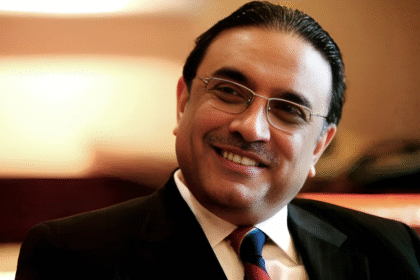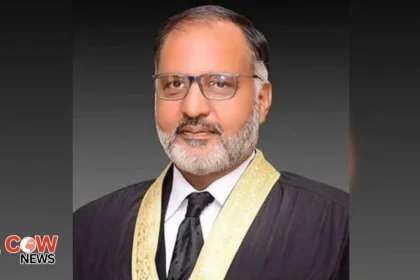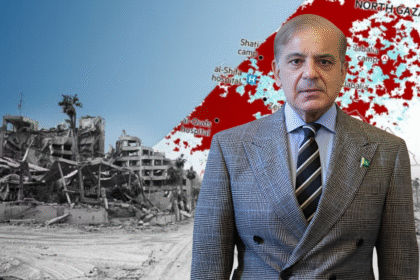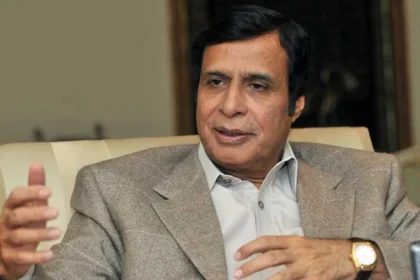Karachi: The total number of poliovirus cases recorded in Pakistan this year has now reached 24 following the recent diagnosis of a two-and-a-half-year-old child from Hyderabad, Sindh. This alarming development underscores the persistent challenges the country faces in its efforts to eradicate polio, with the latest case highlighting critical gaps in vaccination coverage and public health response.
The Recent Case in Hyderabad
The child diagnosed in Hyderabad is from the Neronkot area and has been left paralyzed due to the wild poliovirus type 1 (WPV1). This marks the second confirmed polio case in Hyderabad for the year, signaling a troubling trend in the city and the surrounding region. The immediate reaction from health authorities was one of urgency, as they recognized the implications of this case for public health and vaccination efforts.
The situation is made even more pressing by the fact that just a day before this case was confirmed, a 10-month-old baby girl in Kohat, Khyber Pakhtunkhwa, was also diagnosed with the virus, which was her second case in the province for 2023. This continuous stream of new cases has raised alarms among public health officials, who are now grappling with the reality of a rising outbreak that poses a significant threat to children.
Overview of the Poliovirus Situation in Pakistan
With the new cases emerging, it’s vital to understand the broader context of polio in Pakistan. The country has struggled with poliovirus transmission for years, primarily due to a combination of misinformation, parental refusal to vaccinate, and security challenges in various regions. Balochistan, for instance, has reported 15 confirmed cases this year, establishing itself as the epicenter of the current outbreak. Sindh has recorded five cases, while Khyber Pakhtunkhwa has two, and both Punjab and Islamabad have reported one case each.
The frequency of new cases—almost on a daily basis—raises significant concerns regarding the efficacy of ongoing vaccination campaigns. Each new diagnosis is not just a statistic; it represents a child who will face the lifelong consequences of paralysis, thereby highlighting the critical need for immediate and effective public health interventions.
Understanding the Poliovirus
Poliovirus is a highly infectious virus that primarily affects children under the age of five. It spreads through contaminated water and food, as well as through direct person-to-person contact. While most infected individuals remain asymptomatic, the virus can invade the nervous system, leading to paralysis or even death. The disease can spread quickly in areas with low vaccination coverage, making it essential for communities to maintain high immunization rates.
The polio vaccine, developed in the mid-20th century, has proven effective in preventing the disease. However, success in vaccination campaigns depends heavily on public trust and the ability of health workers to reach every child, especially in remote and conflict-affected areas.
Balochistan: The Epicenter of the Outbreak
Balochistan has emerged as a critical area of concern in the fight against polio, accounting for the majority of this year’s cases. Health officials have attributed the surge in cases to several factors, including lack of access to healthcare, widespread misinformation regarding vaccines, and insecurity in certain regions that hampers vaccination efforts.
The province’s geography presents unique challenges, with many communities situated in remote areas, making it difficult for health workers to reach every child. In addition, cultural beliefs and mistrust of the healthcare system often lead to refusals of vaccination. These hurdles have made Balochistan a focal point for polio eradication efforts, with public health officials prioritizing targeted campaigns to address the outbreak.
Vaccination Campaigns and Public Response
In response to the rising number of cases, Pakistan’s polio eradication program has been mobilizing resources to conduct large-scale vaccination campaigns. Earlier this month, the program organized an anti-polio campaign in 115 districts across the country, aiming to vaccinate 33 million children under the age of five. These efforts are essential to prevent the further spread of the virus and protect vulnerable populations.
However, the campaign faces significant challenges. Despite extensive outreach efforts, vaccination rates remain uneven, particularly in areas affected by insecurity and misinformation. For instance, the ongoing struggle against parental refusals due to skepticism about the vaccine’s safety and efficacy remains a significant barrier. Misinformation often spreads through social media and word of mouth, creating a climate of fear and distrust that public health officials are working tirelessly to counteract.
The Role of Misinformation and Parental Refusals
Ayesha Raza Farooq, the prime minister’s focal person for polio eradication, has voiced her frustrations regarding the slow progress in immunization coverage. She attributes much of the ongoing challenges to parental refusals, which are often rooted in misinformation about the vaccine. This misinformation can stem from cultural beliefs, religious interpretations, or even negative experiences reported by others, leading to a pervasive climate of fear around vaccination.
Public health campaigns aimed at countering misinformation are critical. Officials must work not only to inform parents about the safety and effectiveness of the polio vaccine but also to build trust within communities. Engaging local leaders, religious figures, and community health workers can help amplify the message and encourage more parents to allow their children to be vaccinated.
Addressing Security Challenges
Another major factor complicating vaccination efforts in Pakistan is security. Certain areas, particularly in Balochistan and Khyber Pakhtunkhwa, have been historically prone to violence and conflict. In these regions, health workers have faced threats and attacks while attempting to administer vaccinations. This hostile environment not only endangers the lives of health workers but also deters them from reaching communities in need.
The Pakistani government, along with international partners, has recognized the need for a multi-faceted approach to address these security challenges. This includes increased protection for health workers, better coordination with local law enforcement, and community engagement to ensure that vaccinations can be safely administered.
The Importance of Community Engagement
Community engagement plays a pivotal role in the success of polio vaccination campaigns. Public health officials are increasingly recognizing that simply providing information is not enough. Engaging with communities to understand their concerns and addressing them directly is crucial for overcoming barriers to vaccination.
Health officials are working to involve community leaders in the vaccination process, encouraging them to advocate for immunization within their own circles. By fostering relationships and trust within communities, officials hope to improve vaccination rates and, ultimately, public health outcomes.
Future Strategies for Polio Eradication
In light of the ongoing challenges, authorities have updated the National Polio Eradication Emergency Operations Plan. This updated plan includes strategies to intensify efforts in high-risk areas, with a focus on reaching every unvaccinated child.
Two major door-to-door vaccination campaigns are planned for later this year, aiming to ensure that all children receive the necessary vaccinations. These campaigns will involve collaboration with local leaders, health workers, and international partners to maximize their effectiveness.
Moreover, data collection and surveillance will be crucial in identifying areas with low vaccination coverage and tracking the spread of the virus. This information will guide targeted interventions and resource allocation, allowing public health officials to respond more effectively to emerging threats.
The Role of International Support
International support has been essential in Pakistan’s fight against polio. Organizations such as the World Health Organization (WHO) and UNICEF have provided critical resources, technical assistance, and funding for vaccination campaigns. Their involvement has helped to improve infrastructure and training for health workers, enabling them to reach more children and deliver vaccinations more effectively.
Additionally, global efforts to eradicate polio, including the Global Polio Eradication Initiative (GPEI), continue to provide a framework for coordinated action among countries facing similar challenges. The exchange of best practices and lessons learned from successful campaigns in other countries can inform and enhance Pakistan’s own efforts.
The Road Ahead
As Pakistan navigates the complexities of polio eradication, the urgency of addressing the current outbreak cannot be overstated. Each new case is a stark reminder of the work that lies ahead. For health officials, the focus must remain on ensuring that every child receives their vaccinations, while also tackling the underlying issues of misinformation, security, and community trust.
Involving parents in the conversation around vaccinations is crucial. Education campaigns that prioritize transparency and community engagement can help dispel myths and alleviate fears surrounding the polio vaccine. Moreover, a concerted effort to ensure the safety of health workers will be vital in restoring confidence in vaccination programs.
The commitment to eradicating polio in Pakistan requires a unified approach, bringing together government officials, health workers, community leaders, and international partners. By addressing the multifaceted challenges head-on, Pakistan can work toward a future where polio is no longer a threat to its children.
The latest cases of poliovirus in Pakistan serve as a critical reminder of the ongoing battle against this preventable disease. The road to eradication is fraught with challenges, but with collective effort, transparency, and community engagement, there is hope for a future free from polio.
#Polio #Pakistan #HealthCrisis #Vaccination #PublicHealth #Balochistan #Sindh #ChildHealth







